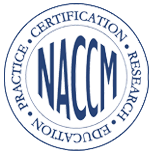Brain Injury Awareness Month: Why It Matters
The brain, our most intricate and vital organ, is at the heart of everything that makes us who we are. But for our seniors, it’s also incredibly fragile, facing threats from brain injuries that are both common and severe. Every year, too many of our elders are forced to navigate the life-altering challenges that come with these injuries, impacting not just their lives but those of their loved ones.
March brings us Brain Injury Awareness Month, a crucial time to focus on this often-overlooked issue. This article sheds light on why this month is so important, especially for the elderly affected by brain injuries. It’s a heartfelt look at the struggles they face and a call to all of us to be more aware and caring about this significant health issue.
What is a Brain Injury?
A brain injury, in its simplest definition, is any injury to the brain that disrupts its normal function. But there’s nothing simple about the brain or the injuries it can endure. These injuries can range from mild, causing temporary confusion or headaches, to severe, leading to long-term complications or even permanent disability.
In seniors, brain injuries often occur due to falls, which are alarmingly common in this age group. As we age, factors like decreased balance, vision problems, and weaker bones increase the risk of falling. A slip in the bathroom, a trip over a rug, or a misstep down the stairs can all lead to a dangerous fall, potentially causing a traumatic brain injury.
But falls aren’t the only culprits. Seniors can also suffer brain injuries from car accidents, strokes, or even as a result of certain illnesses that affect neurological function. It’s crucial to recognize these causes because understanding them is the first step in prevention and care.
How Brain Injuries Impact Seniors
When a senior suffers a brain injury, the repercussions extend far beyond the initial incident. These injuries can lead to a cascade of changes, impacting various aspects of their lives. This section delves into these challenges, emphasizing both the cognitive and physical ramifications that are often overlooked or misunderstood.
Cognitive Decline
Cognitive decline is one of the most profound consequences of brain injuries in the elderly. Initially, it may present as minor forgetfulness or confusion, but the implications can be far-reaching. Memory loss is a common issue, where seniors might struggle to recall recent events, familiar faces, or even basic routines.
Beyond memory, brain injuries can impair critical thinking and problem-solving skills. Tasks that once seemed effortless, like balancing a checkbook or following a recipe, can become insurmountable challenges. There’s also a noticeable impact on the speed of cognitive processing. Seniors might take longer to understand new information or feel overwhelmed by decisions that require quick thinking.
Emotional and Psychological Effects
After a brain injury, many seniors experience a profound shift in their mental health. Depression and anxiety are common, stemming from the loss of independence, fear of further injury, and the frustration of facing limitations that didn’t exist before. There’s often a grieving process as they come to terms with these changes in their abilities and lifestyle.
Mood swings and changes in personality can also occur, which can be distressing both for the seniors and their loved ones. A once patient and gentle individual might become irritable or quick to anger. This shift can be disorienting and upsetting, contributing to a sense of loss of the person they once knew. Furthermore, the trauma of the injury itself, coupled with the ongoing struggles, can lead to symptoms of post-traumatic stress disorder (PTSD), particularly in cases of accidents or falls.
Physical Impairments
The physical impairments following a brain injury can be just as debilitating as mental changes. Mobility issues are a primary concern. Depending on the severity of the injury, a senior might experience anything from occasional unsteadiness to complete loss of movement in certain limbs. This not only increases the risk of further falls but can also lead to a drastic reduction in independence.
Balance and coordination are often compromised, making everyday activities like walking, dressing, or even eating challenging. Muscle weakness or paralysis, particularly on one side of the body, is also common, requiring physical therapy and, in some cases, long-term care.
Moreover, brain injuries can lead to other physical symptoms that disrupt daily life. Persistent headaches, dizziness, and fatigue are frequent complaints. Sensory disturbances, like changes in vision or hearing, can further complicate matters. These physical limitations necessitate significant adjustments in living environments, often leading to the need for assistive devices, home modifications, or relocation to care facilities.
Social Isolation
Social isolation is a significant yet often overlooked consequence of brain injuries in seniors. As they grapple with the cognitive, physical, and emotional changes post-injury, participating in social activities can become challenging. This difficulty is compounded by mobility issues, communication barriers, or the fear of stigma and misunderstanding from others.
As their world shrinks, seniors with brain injuries might find themselves increasingly cut off from friends, community activities, and even family gatherings. This isolation can exacerbate feelings of loneliness, depression, and anxiety, creating a vicious cycle that further impacts their mental health and overall well-being.
The Importance of Brain Injury Awareness
Raising awareness about brain injuries, especially in the senior population, is vital. Awareness is the key to early detection, intervention, and, ultimately, better outcomes for those affected.
Awareness starts with education. By understanding the signs and symptoms of brain injuries, family members, caregivers, and even seniors themselves can recognize the early warning signs. Symptoms like confusion, memory loss, difficulty with balance, or changes in mood can sometimes be mistakenly attributed to ‘normal aging,’ leading to delayed diagnosis and treatment. Early detection is crucial as it can significantly impact the course of recovery and rehabilitation. With prompt medical attention, many seniors can regain a substantial degree of independence and quality of life.
Moreover, awareness extends beyond just recognizing symptoms. It includes understanding the potential causes and taking proactive steps to prevent brain injuries. This includes making homes safer to reduce the risk of falls, encouraging regular health check-ups, and promoting a healthy lifestyle to decrease the risk of strokes and other health conditions that can lead to brain injuries.
On a broader scale, awareness fuels advocacy. It leads to better funding for research, improved rehabilitation services, and more effective public health policies. It also fosters a more inclusive and understanding community where seniors with brain injuries can find the support and acceptance they need.
Brain Injury Awareness Month serves as a poignant reminder of these needs. It’s a time to amplify voices, share stories, and mobilize resources. But the efforts shouldn’t be confined to just one month. It’s a year-round commitment to ensuring that seniors with brain injuries and their families receive the recognition, support, and care they deserve.
The Vital Role of Brain Injury Awareness in Senior Care
Brain injuries in the elderly are a multifaceted challenge that requires a compassionate and comprehensive approach. Whether it’s adapting to cognitive changes, overcoming physical impairments, or battling emotional and psychological effects, the journey following a brain injury is complex. But it’s a journey no one should have to walk alone.
In recognizing the significance of Brain Injury Awareness Month, we are reminded of the importance of expert care and support. This is where Reflections Management and Care steps in. With a team of dedicated professionals who specialize in senior care, Reflections Management and Care is equipped to provide the understanding, expertise, and personalized attention that seniors with brain injuries deserve. If you or a loved one is navigating the challenges of a brain injury, remember that help and support are just a call away. Reach out to Reflections Management and Care for expert guidance and compassionate care, ensuring that the journey ahead is met with the best possible support and resources.














